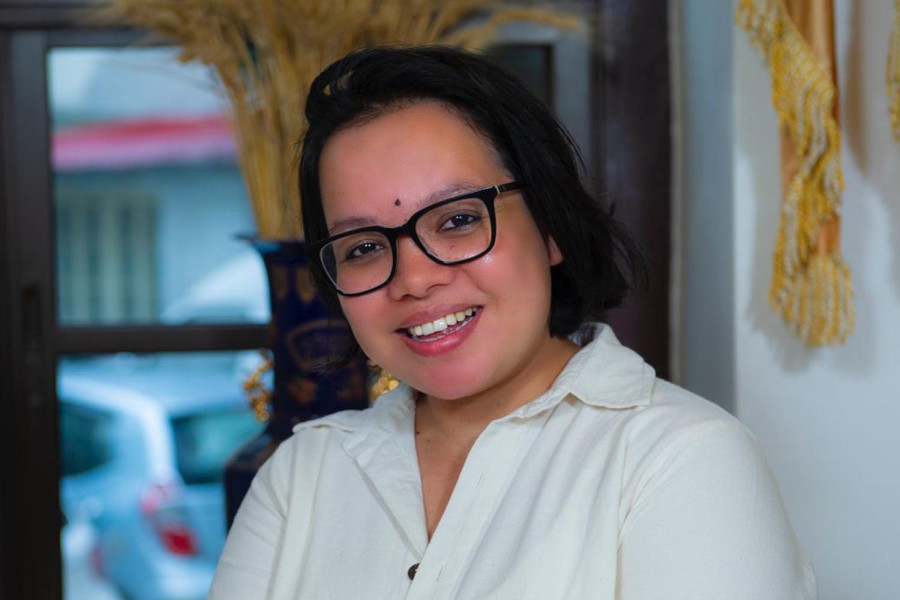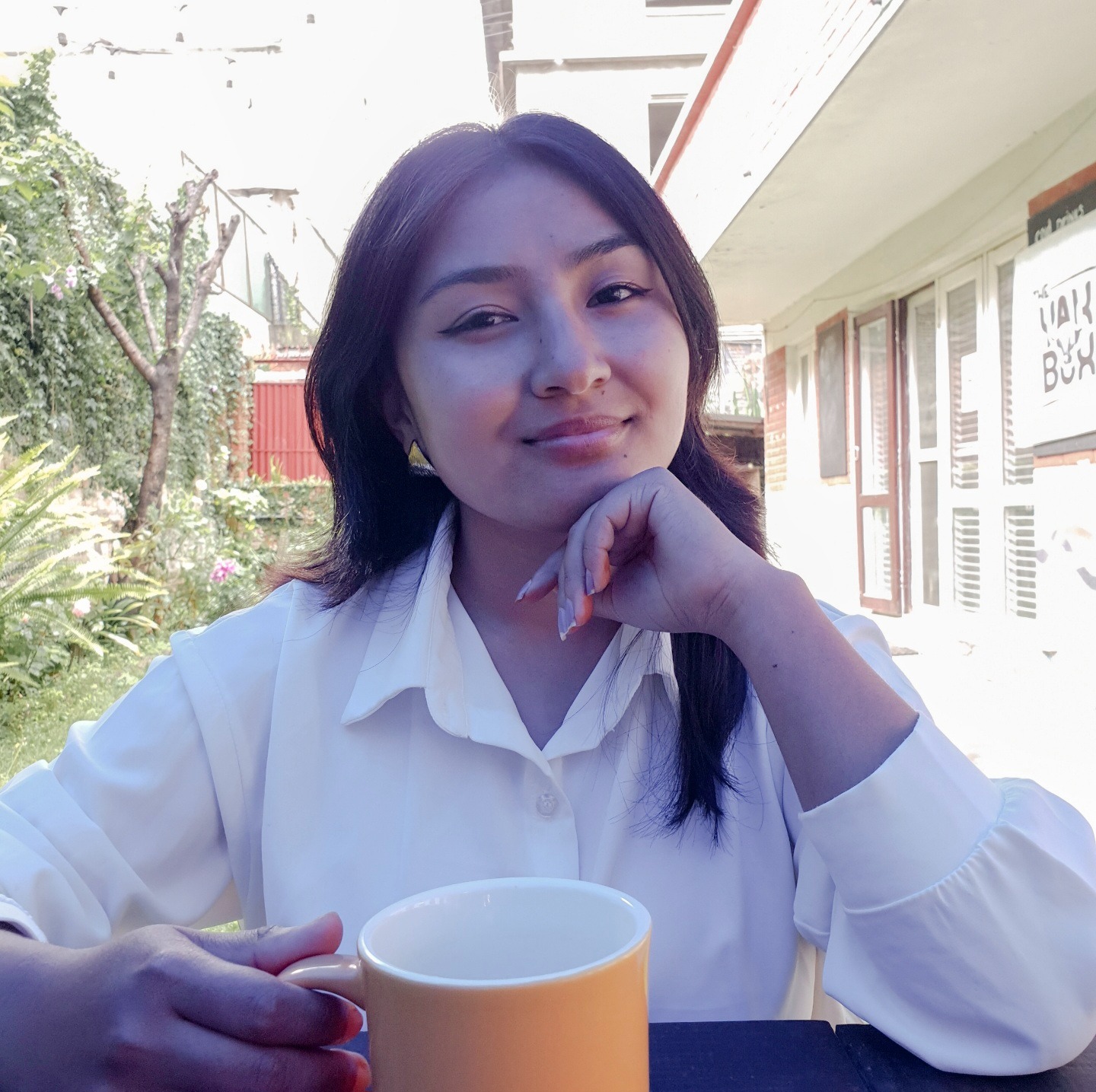Culture & Lifestyle
A crusader for green future and maternal safety
Dr Manu Karki, founder and CEO of Eco Saathi Nepal and co-founder of Aama Surakshya Nepal, advocates an eco-friendly lifestyle and safety for pregnant women in Nepal.
Timila Maharjan
A mom of two, dentist, entrepreneur, founder and CEO of Eco Saathi Nepal, and co-founder and Executive Director of Aama Surakshya Nepal, Dr Manu Karki inspires many. She also received the Social Impact Award from Hatti Hatti (an organisation devoted to women's empowerment).
Currently, Karki is not practising dentistry but is focused on her children while managing two organisations: Eco Saathi Nepal and Aama Surakshya Nepal. Both initiatives have personal stories behind their origins.
Her journey towards sustainability began during a trip to Taiwan with her husband, where she met two friends who lived an eco-friendly, plastic-free lifestyle. Inspired by their sustainable habits, she adopted a similar lifestyle upon returning to Nepal. Reflecting on this, she said, "I started a page called Eco Saathi Nepal to document and share my journey towards eco-friendliness."
As people began asking Karki where they could buy eco-friendly products, she searched for suppliers in Nepal but found none. Determined to fill this gap, she ordered bamboo toothbrushes and cutlery online. However, when the items arrived in bubble wrap, it felt counterproductive to her eco-friendly mission. Realising the demand for sustainable products and the lack of availability, she started her venture.
Drawing on her experience as a dentist, Karki began by selling 500 bamboo toothbrushes. Today, Eco Saathi offers 25-30 different eco-friendly products. “Now we also provide customised eco-friendly hotel amenities like toothpowder, bamboo toothbrushes, hairbrushes, and more,” she explains. Beyond bamboo, Eco Saathi sells a wide range of sustainable products and continually researches to expand its offerings with more environmentally friendly solutions.
Eco Saathi hosts weekly live sessions on Instagram, discussing sustainability, climate change, and eco-friendly lifestyles. They feature a ‘You Inspired Me’ series to motivate others toward greener living and run a Green Podcast where they interview eco-entrepreneurs about sustainable business practices. The company claims they have prevented over 10,000 kg of plastic waste from entering landfills.
After becoming a mother of two, Karki took a break from her dental career to focus on her children. She appreciates how Eco Saathi, with a studio built from her parents' old chicken coop, allows her to work from home. Everything in the studio is recycled, and Karki attributes the company’s growth to consistency and hard work.
Karki registered Eco Saathi Nepal as a company two months after opening the Facebook page in 2019. She says, “I was inspired when I saw similar companies do well abroad.”
Karki shares that discovering her passion motivated her shift from dentist to entrepreneur. She studied dentistry due to external pressures and a lack of career guidance, choosing the field because it was considered secure. As the eldest in her family, she needed to set a strong example. "I was passionate about public speaking, mass media, and communication in school, and even took RJ training, but these interests remained hobbies," she explains. "Had I known more about different subjects and career options, they might have become my profession instead."
Though Karki enjoys dentistry and has found financial success, it wasn’t until she was exposed to eco-friendly living during her trip to Taiwan that she discovered her real calling: sustainability. This realisation eventually led to the founding of Eco Saathi.
According to Karki, half of the products are manufactured in Nepal, and half are imported. Most bamboo products are imported as there has yet to be a manufacturing plant in Nepal. The team curates the ideas for the products and gives them to different local vendors to manufacture.
One of the significant challenges Karki faced when starting Eco Saathi was determining the pricing for their eco-friendly products, as these were new to the Nepali market. After conducting research and seeking advice, they set the prices. The venture began with a focus on raising awareness about sustainability and eco-friendly living, which required significant time and effort on digital platforms.
Contrary to expectations, the pandemic helped Eco Saathi grow by allowing Karki to create more awareness and promote the brand on a larger scale. During the pandemic, she maintained strong connections with customers through initiatives like the ‘100 Ways to Reuse Stuff at Home’ series, which resonated with people on social media. This engagement led to a surge in orders once the lockdown was lifted. Karki viewed the pandemic as an opportunity rather than a challenge, though it did limit access to materials and hinder product research.
She shares that her family and friends were Eco Saathi's first customers and have remained supportive, helping to promote the brand by sharing products on social media. This gradually connected new customers to the business. She recalls a customer who was delighted to receive products wrapped in newspaper, a personal touch she handled herself, and posted about it online. From the start, customers were open, receptive, and excited to try Eco Saathi's eco-friendly products, and many of the early customers continue to buy from them today.
Karki founded Aama Surakshya Nepal, a non-profit organisation inspired by her experience during pregnancy. After five miscarriages, she finally became pregnant and, while eight months along, had a distressing experience at a hospital where she had to stand in line for over half an hour. This made her realise the challenges pregnant women in Nepal face, even those like herself who are privileged. She noted that women, especially during pregnancy, often become dependent on others, which can be dangerous if the support person is abusive. Hearing similar stories from her friends, she recognised the lack of safety and accessibility in public spaces for pregnant people. Aama Surakshya Nepal was created to make public spaces, transportation, and healthcare centres safer for pregnant individuals.
During a visit to Japan, Karki saw keychains that helped identify pregnant people in public spaces, giving them priority. Inspired by this, Aama Surakshya Nepal introduced badges for pregnant individuals, making them more visible and helping them navigate public spaces more efficiently. This was the first time such badges were introduced in Nepal, and after a year, even Sajha buses now recognise and prioritise passengers wearing these badges. Since there are few donors, Eco Saathi's profits are allocated to Aama Surakshya Nepal, which she co-founded with three friends.
Through Aama Surakshya Nepal, Karki and her team have educated bus drivers and conductors in Godawari Municipality on making public buses safer for pregnant individuals. NIC Asia Bank also recognises pregnancy badges, allowing badge holders to skip queues. They have also conducted gynaecologist camps in several wards and plan to expand these efforts to primary health centres (PHCs) for cost efficiency. A small study on badge users showed the badges were practical and helpful.
Lastly, she encourages people to take small steps toward an eco-friendly lifestyle and be responsible for our environment. She also says not to be insensitive towards pregnant people and to help them with kindness whenever possible.




 13.12°C Kathmandu
13.12°C Kathmandu















